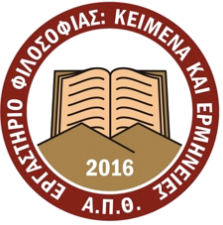Canon-making in the age of cross-cultural philosophy
Curie Virág (University of Edinburgh)
Abstract
With the growing call to diversity and globalize philosophy to make it more inclusive of traditions, classes, genders and discursive forms, the idea that there is a single philosophical canon —or even a single Chinese or Western philosophical canon— is difficult to sustain. It is clear that philosophical canons, no less than other kinds of canons, are manufactured in ways that reflect the interests and concerns of particular privileged groups, further perpetuating inequities. But if this is the case, it is equally clear that, while canons might be rightfully contested, canon-making is a fact of human culture. Moreover, the idea that there are authoritative texts that merit special attention, and are thus worthy of canonical status, seems to be a condition of doing philosophy itself. My paper discusses significant instances of canon-formation surrounding authoritative ancient texts in both China and Greece, and considers how we might apply insights about the transcultural phenomenon of canonicity and canon-making towards developing a more robust practice of cross-cultural philosophy.
Curie Virág is a specialist in the philosophy and intellectual history of early and middle period China, working on ethics, epistemology, and moral psychology, especially in relation to the emotions. She is the author of The Emotions in Early Chinese Philosophy (Oxford 2017) and is at work on her second monograph, tentatively titled, Emotional Worlds: Self, Community and Cosmos in Medieval China. She has worked at the University of Toronto, Central European University (Budapest), and the University of Edinburgh, where she remains an Honorary Fellow. Her co-edited volume with Douglas Cairns, In the Mind, In the Body and in the World: Emotions in Early China and Ancient Greece, is forthcoming at Oxford University Press.

